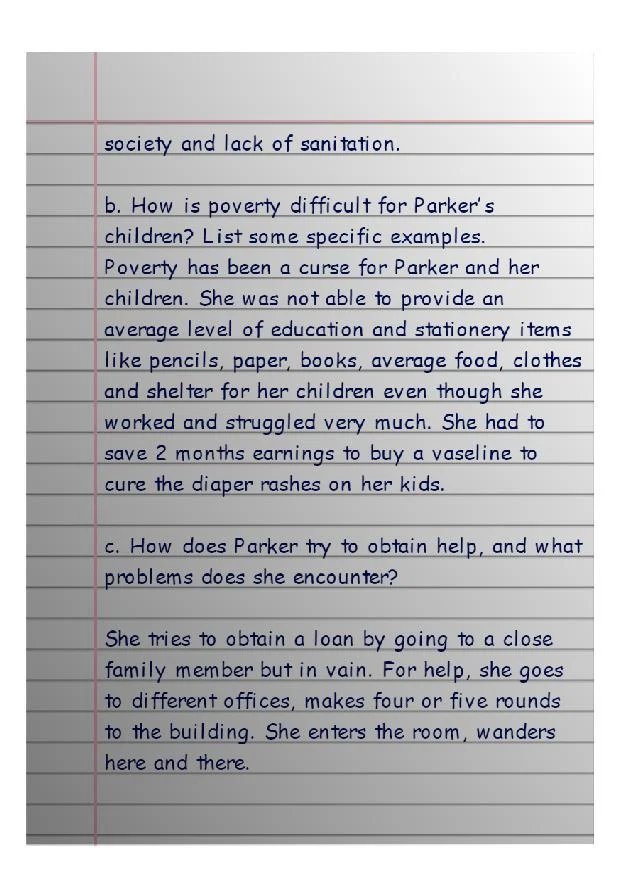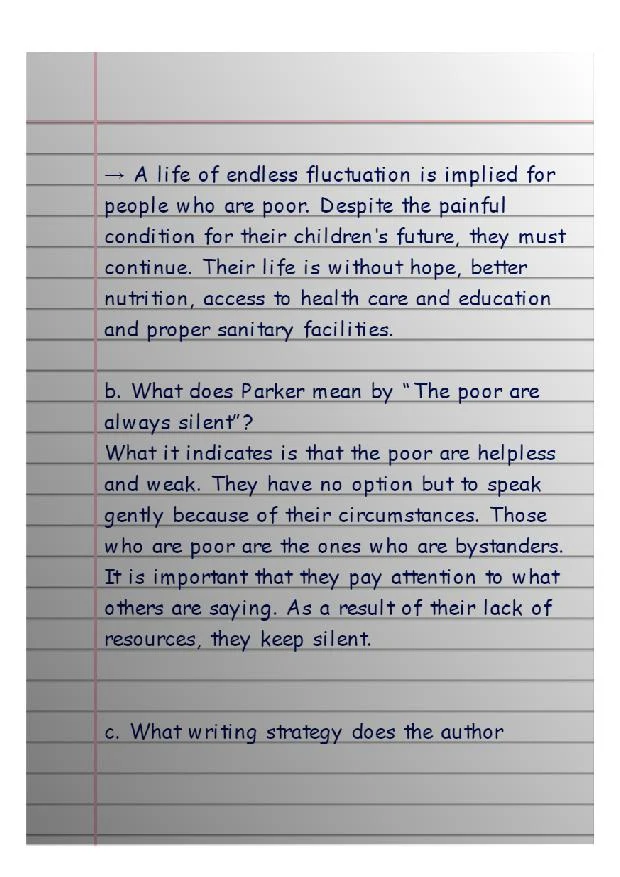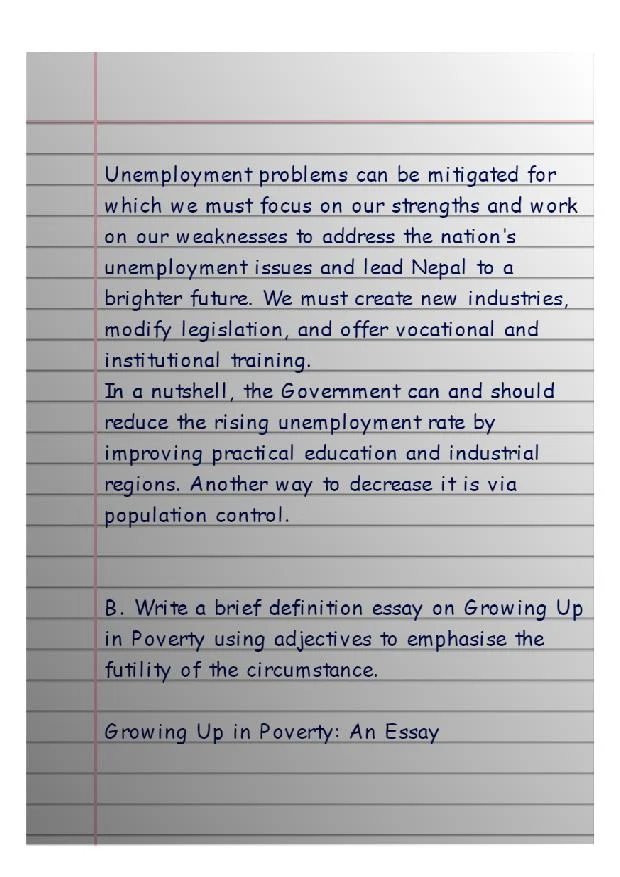What is Poverty? Exercise Class 11 English: Summary & Questions Answers
In 'What is Poverty', Jo Goodwin Parker shares her own experience living in poverty to provide a real definition of what poverty actually means. This essay is in Class 11 English essays Unit 4. Textbook exercise question answers solution and summary of this text is discussed in this article.
For complete notes of Class 11 English Book, go to this link - Class 11 English Guide & Notes.
What is Poverty? Exercise
What is Poverty by Jo Goodwin Parker Summary
In the essay entitled ‘What is Poverty’?, author Jo Goodwin Parker has discussed her own experience with rural poverty. She tries to give the real and experienced definition of poverty throught this essay citing real life examples.
She describes her upbringing in poverty and the everyday difficulties she faces. Poverty, in her opinion, has many guises. Poverty is the inability to afford clean water, nutritious food, medical treatment, or appropriate sanitation, as well as an adequate standard of life. Because it's so destructive to pride, dignity, health, and future, it's like a poisonous acid.
She dropped out of school and married young because of her family's financial situation.
She and her husband broke up due to some reasons.Because of her plight, even her spouse turned against her. She could not avoid pregnancy because birth control was too costly for her. Her financial situation prevented her from prioritising health. Because of her three children, she felt guilt and embarrassment if she didn't seek assistance to conquer this issue.
She states that she does not have enough money to buy clothes for her child and she even wears filthy and dirty clothes. Her job pays less than the minimum she needs to cover her child care costs as well. Without butter or oil, she serves cornmeal for breakfast to her children. When she ran out of baby diapers to purchase, she didn't even have enough money to buy skin care creams to care for the rashes.
She opined that today's world is a world of self-centeredness since despite her best efforts, she received no assistance when she extended her hands to everyone. When it comes to poverty, Parker doesn't seek pity; instead, she seeks to educate her readers the real meaning of poverty.
She was unable to get any assistance or support from government organisations or any other relatives. She claims to have no pleasures in her life as a result of the high expense of necessities. According to Parker, living in poverty is comparable to staring into the black future.
She eventually comes to the conclusion that poverty is comparable to an acid that slowly eats away at our pride until it is completely gone. Not being able to afford schooling and other necessities is a sign of poverty. Overall, she says that poverty is a lack of the necessities of life, living in filth, being exhausted, and desiring assistance, as well as being shameful.











